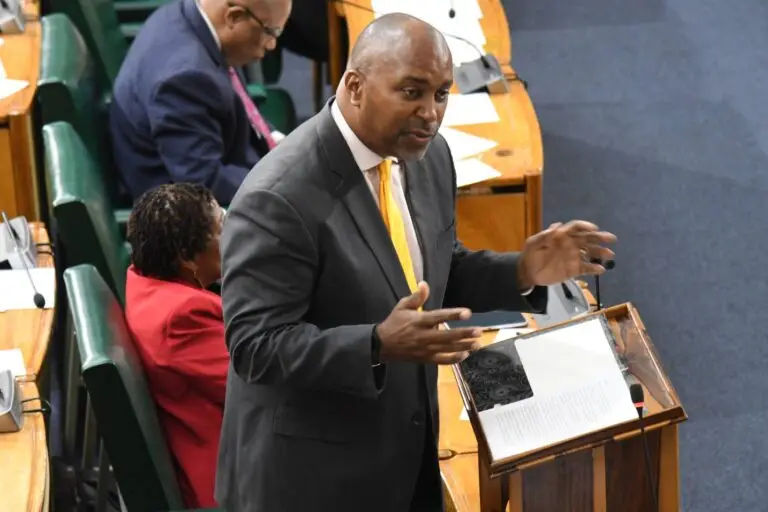The People’s National Party (PNP) has laid out a broad strategy to reduce Jamaica’s electricity costs, framing high energy expenses as a major obstacle to economic growth and competitiveness.
During his 2025/26 Budget Debate contribution in Parliament, Opposition spokesman on finance, planning, and the public sector, Julian Robinson, emphasized the urgency of energy reform, stating that the current cost of electricity hinders businesses, stifles innovation, and weakens Jamaica’s position in global markets.
“If we truly want to drive export-led growth, we must take energy reform seriously. A PNP government will not sit idly by while high electricity prices continue to hold back our economy,” Robinson asserted.
PNP’s Vision for Energy Transformation
While full details of the PNP’s energy plan are expected to be shared by Opposition Leader Mark Golding and energy spokesman Phillip Paulwell, Robinson outlined several initiatives that a future PNP administration would prioritize to bring down electricity costs.
- Expansion of Renewable Energy
A PNP government would accelerate the adoption of solar and wind energy, making Jamaica less reliant on fossil fuels and vulnerable to global energy price fluctuations. - Revised Net Billing Structure
The party proposes increasing net billing rates, making it more attractive for individuals and businesses to invest in solar and wind energy by allowing them to sell excess power to the grid at better prices. - Implementation of Power Wheeling
Businesses with multiple locations would be able to generate electricity at one site and distribute it to others, reducing their overall energy costs. - Development of Micro-Grids
To address energy poverty, the PNP would implement micro-grids in communities, ensuring stable and affordable electricity access for underserved areas. - Transparent Pricing and Consumer Protections
The party intends to introduce a more transparent pricing mechanism for electricity bills while offering targeted support for vulnerable customers, including the elderly and people with disabilities.
Robinson also signaled the PNP’s intent to push for full liberalization of Jamaica’s electricity market, allowing for greater competition and potentially lower prices.
Electricity Theft and Social Solutions
Addressing concerns about electricity theft, Robinson acknowledged Finance Minister Fayval Williams’ recent announcement of a $1-billion government initiative to provide assistance for first-time Jamaica Public Service (JPS) customers. However, he cautioned that tackling electricity theft requires more than just financial incentives.
He recalled that in 2014, the PNP introduced a similar program, “Project Step-Up,” which regularized electricity use in inner-city communities through a partnership between the Jamaica Social Investment Fund (JSIF) and JPS. The initiative not only upgraded electrical infrastructure but also incorporated social interventions to educate residents on the importance of legal electricity use.
Robinson urged the government to adopt a more comprehensive approach, incorporating social outreach alongside financial incentives.
“Providing wiring and legal connections is necessary, but the reality is, people must be engaged and convinced that this is the right step forward. Otherwise, the sustainability of these initiatives will be in jeopardy,” he cautioned.
A Long-Term Commitment to Lowering Electricity Costs
The PNP’s proposed energy reforms will be implemented in phases, aiming to deliver noticeable reductions in electricity bills within the short to medium term.
“We are committed to ensuring that Jamaicans see tangible benefits from energy reform—lower costs, increased access, and a more sustainable future,” Robinson concluded.
With rising energy prices affecting both businesses and households, the debate over Jamaica’s electricity sector is expected to intensify in the coming months as the government and opposition present competing solutions for the country’s energy future.

